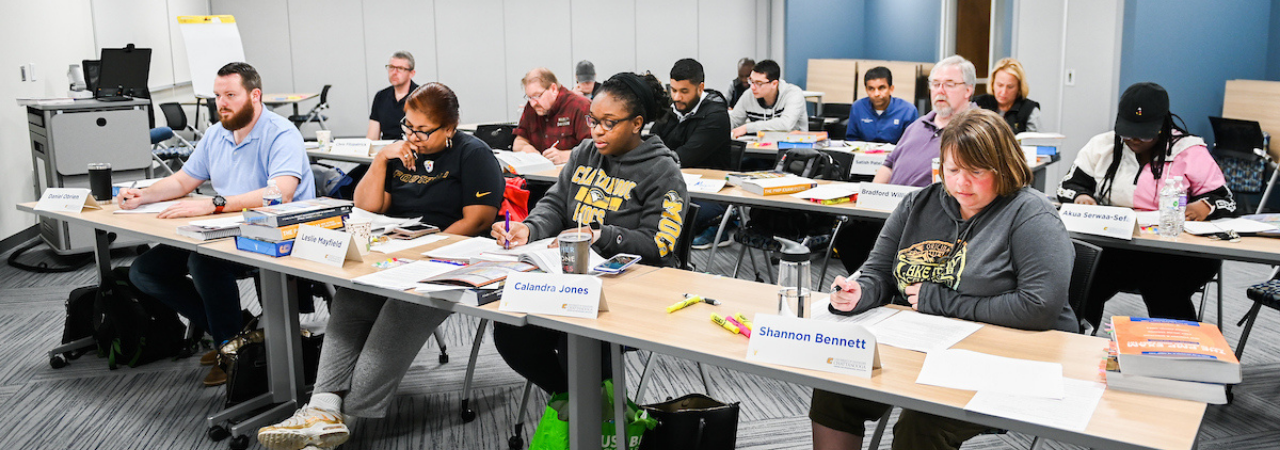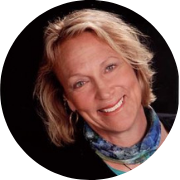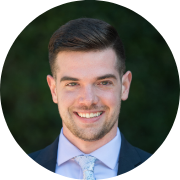

By earning her PMP, Dale Tillman has crossed an item off her career bucket list. Having worked as a senior program manager at TVA for 20 years, Dale wanted to solidify her experience and knowledge through certification. To ensure she was ready for test day, Dale enrolled in UTC’s PMP Exam Prep course. CPE recently caught up with Dale to learn more about her PMP experience and what’s next in her career.
CPE: Why did you pursue the PMP certification?
Dale: Many job listings, especially at TVA, are requiring candidates to get their PMP certification within a year of being hired. If I ever decided I wanted to apply for a different job within TVA, I didn’t want there to be a stumbling block because I don’t have my PMP. Even the pure engineering departments at TVA are trying to create a common project management platform. They want consistencies in how projects are managed, regardless of department, and are looking at using the PMBOK. I wanted to better contribute to initiatives within the company. I also knew other professionals who said that they became more effective at managing projects once certified. That’s what really piqued my interest—the ability to be more effective as a program manager post-course/certification exam.
C: How do you use your PMP as a program manager?
D: I oversee all the projects, initiatives, and “mini-projects” related to the tools that TVA’s Energy Trading Group uses. The group buys and sells electricity on the wholesale market. The business tools they use are a whole suite of different systems, and I manage that entire program. Many of the program’s pieces are interdependent of one another; changing one system has a ripple effect on the other systems. Being able to have a good inventory of the systems, and the systems’ data points, helps a great deal.
C: In what ways did you find the PMP course to be beneficial as you prepared for certification?
D: The most valuable thing I found from UTC’s PMP Exam Prep course was the application help. You can know the PMBOK perfectly and be able to ace the exam. However, if you don’t make it through the application process, you don’t get to take the exam—so your knowledge doesn’t matter! Ginger helped me tremendously with my application so that, when I submitted it, it was approved with no snags. It was outrageously beneficial.
Also, I completed the 35-hour online component to the course prior to taking the in-person class. I felt that I only got so much out of the online portion, and I acquired a fuller understanding of project management after coming on campus. When I finished the online class, I was a little confused as to how all the puzzle pieces fit together because the online portion was very compartmentalized with different sections. The course itself is where everything came together. Interacting with the instructor, Kimberly Casperson, was fabulous. She has a great sense of humor and gave great one-on-one feedback. I also enjoyed the discussion with classmates. Everybody in the class had been working as a project manager in some capacity for a number of years, and I thought the perspective from a mix of industries was incredibly valuable, too.
Honestly, there’s no way I would have gotten through the application process without Ginger’s assistance, and there’s no way I could have passed the exam without taking the course.
C: Are you using any of the concepts you learned on a daily basis?
D: Oh, definitely! The class helped me be more cognizant of a risk register. When planning projects, I now think, “What’s going to be the best alternative, solution, or workaround if we hit a roadblock? How do we mitigate the risk?” Life isn’t perfect and things go wrong, but thinking of different contingency plans for if A, B, or C happens helps us stay one step ahead. That part of the PMBOK is something I have even started using in my personal life.
I am also more aware that there needs to be a definite beginning and end to projects. In the initiating phase, I learned it’s important to clearly define everyone’s roles and responsibilities. I now spend a large amount of time planning, along with coming up with contingency plans. The closing phase is also an aspect of project management I am more conscious of. Previously, I wasn’t great at actually ending the project, which isn’t good because then they seem to go on forever and blend with other projects! Now, at the close of a project, I put out a report detailing what we did, I have the customer sign off, and I officially end the project. As far as I’m concerned, I now have projects that actually stop and are done!
C: What advice would you give to someone studying for the PMP? What are some study tips/takeaways you implemented?
D: Take practice exam after practice exam after practice exam! Those are so important.
Also, I would tell someone who is studying for the PMP to think situationally as opposed to just memorizing processes. Yes, you need to be able to regurgitate back the different processes, inputs, and outputs. But, when answering the questions, I would suggest thinking more in terms of, “How do you handle the situation in a project?” Don’t just think about what the next process is after the communication plan; think situationally. I know they are changing the exam structure some in January, but my exam was highly situational.
I would also say that when it comes to the whole PMP process (the studying, the application process, the course) that I underestimated how much effort it was going to take. You must be all in if you’re going to do it, and make a commitment to the process, realizing it’s going to take up a chunk of your time. It’s a project in itself!
C: On test day, when you finally hit submit and saw that you passed, how did you feel?
D: I was told that when you hit submit, a white screen would appear for a few minutes and I was not to worry. But I hit submit and the results were almost instantaneous! It came back so quickly that I thought I had flunked. Thankfully, I had passed. I breathed a tremendous sigh of relief knowing that I had finally gotten my PMP.
C: What’s next now that you are PMP certified?
D: I would like to get my master’s in electrical engineering at UTC. My undergrad degree is in electrical engineering, and I love it. It’s taught me how to solve problems and being trained to think that way has given me an edge. I’ve been working in the utility industry for 38 years and have only had 2 employers during that time, so I don’t see myself trying to move to a different industry or anything. It just really helps to understand how electricity works for the projects, systems, and programs I oversee. I’m getting my master’s degree for me, and I am really excited about it!
ABOUT THE AUTHORS:

Marah Whitaker (think Laura with an M) serves as the marketing assistant for UTC Center for Professional Education. During the workday, she spends time writing blog posts, creating content for social media, developing email campaigns, and building relationships with CPE’s customer base. During her free time, you can find her getting lost in a good book, having spontaneous dance parties, playing piano, and going to Buffalo Wild Wings on Wing Night. Professionally and personally, she aspires to live by Mr. Feeny’s advice, “Dream. Believe. Try. Do Good.” She strives to use her passions to serve others and contribute positively to the world around her.
Connect with Marah on LinkedIn.

Jeff Grant sees himself as a storyteller, and thankfully, he gets to tell some incredible stories by serving as the marketing coordinator for the UTC Center for Professional Education. During the workday, Jeff can be found implementing new marketing strategies or writing content. When Jeff is away from the office, he could be found hiking the Cumberland Trail, trying new recipes, or getting lost in a good book.
Connect with Jeff on LinkedIn.